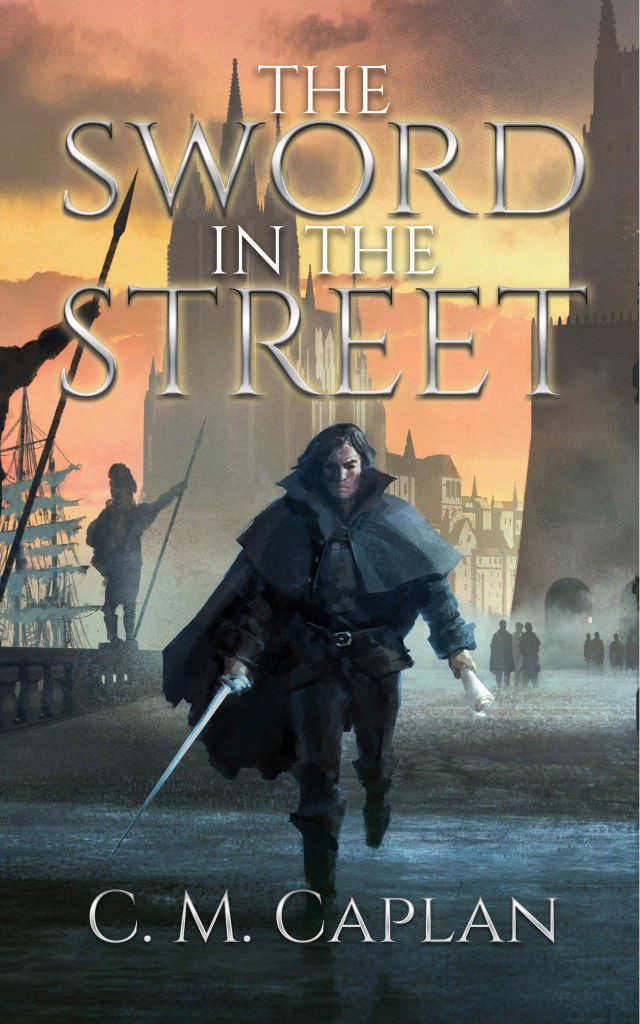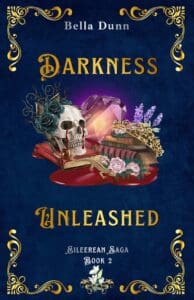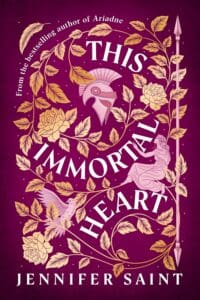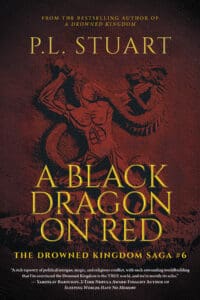
Synopsis
Hired blades ought to be better at making ends meet. John Chronicle bleeds his patron’s foes in savage duels. While he’s disgusted by the petty grievances and corporate laws he champions, even the promise of security is better than nothing at all. But how long can he depend on a wage that barely pays enough to cover his rent?
His boyfriend Edwin is familiar with dependency. Reliant on his parents’ goodwill to supply the drugs that keep the spirals of his mind in check, he wants nothing more than to get out from under their thumb. A solution comes when he finds a document full of knowledge that was, impossibly, forgotten. But while he could use those secrets to rewrite the gentry’s unjust laws, it might cost him his relationship – or John’s life.
The two find themselves entangled in the web of intrigue surrounding the laws, the swordsmen, and their sponsors. They’re forced to question how bloody they’re willing to get for a shred of agency. But will they survive this tangle of deceit together?
Review
The Sword in the Street is the debut novel from indie author C.M. Caplan. Before we get into the review, I do want to mention that Connor is a reviewer here on FanFiAddict and a personal friend of mine. However, I don’t think that either of those things influenced my review in any way. The Sword in the Street has been one of the hardest books for me to review. I’ve been putting it off for a while now, fiddling with the draft over and over. Not because I don’t have anything to say about it or that it was bad in any way. If anything, maybe it’s because I am too close to it. It was a very emotional read for me. Not only have I been going through a lot in my personal life, but I also just related to the characters so damn much. I’ve been putting off this review because I have too much to say, I feel too much about it. Hopefully, by the time this review is published, I will have collected my thoughts into something resembling a coherent review.
The Sword in the Street is a self published, low fantasy, Dickensian novel set in a pre-industrial European-esque world. It’s not a very plot-centric tale, instead focusing on the characters themselves and how they navigate this world that is determined and designed to keep them down. In fact, I might even label this as a slice of life story. Disputes between the nobles are settled by way of duel, a semi-religious affair where a pair of sponsored swordsmen fight to various states of injury. This sponsorship, as well as his lowborn status and a strange sense of loyalty, has led John Chronicle to being nothing more than an indentured servant, scrabbling to make ends meet. His patron, Lordess Triumph, like all of the nobles, views everything based on the profit it can bring her—and John’s profit margins are growing slimmer by the day. Patronage doesn’t only apply to the swordsmen employed by the noble houses, but extends out to every worker in the city. This ensures that those in Hillside stay in power and those in the Dregs stay in their place of servitude. It’s a grim world and one in which John is desperately trying to escape. His boyfriend Edwin, however was born into wealth and wants for nothing while his parents pay for his education and provide a monthly stipend for him to live on. Caplan gives a thorough examination of the hardships that come from this disparity in wealth and it feels almost a step away from reality.
“Some legends are just twisted truth; the things you get when you smudge the ink that writes the histories.”
There are many things that I can talk about in this review, but the thing that Caplan excels at is his character work. I can definitively say that I have never read a more realistic portrayal of mental health in a work of fiction. Edwin is autistic and has John is probably suffering from post-traumatic stress disorder. Caplan takes his readers inside the mind of both of these characters and we see firsthand the inner turmoil that these conditions cause. I, myself, am autistic and I see so much of myself reflected in Edwin and I know that Caplan is writing from experience because the representation is so authentic. To see myself so accurately portrayed on the page was so immensely validating to me that I can’t stop thinking about Edwin.
Speaking of representation, John and Edwin are gay and, like their mental health, it’s not a plot device or contrivance, but it just is. Their relationship is front and center and is, arguably, the main focus of the story, however it’s not fetishized or used in a way that belittles it. John and Edwin love each other and the world sees them as just another couple. It’s refreshing and I wish more authors would take this stance. After all, it’s fantasy; it’s all literally made up, so why can’t we make more worlds where non-heterosexual relationships are normalized? John and Edwin’s relationship is not an easy one for either to navigate. Between John’s obsession with escaping poverty and Edwin’s disability, their relationship is fraught with disagreement and misunderstanding. Neither are good with communication, John being somewhat self-centered and Edwin having a difficult time understand the subtleties, and they each try to give the other what they they think they need, often to disastrous results.
“The (sic) only way to make it right is to try and be better. Then you fail and try again. But you can’t do that if you’re caught up worrying over what’s already done, and what’s already done is not evil.”
There are only a few small gripes that I have with The Sword in the Street and they all have to do with the worldbuilding. The city felt real, with the rich literally living above the poor, but Caplan’s over reliance on using directions when navigating the city (i.e. X turned down Broad Street, then took a right at Main) just left me confused instead of grounding it further. This is a situation where a map might have helped, or maybe just more descriptive writing. Additionally, the magic system ended up a little nebulous in my mind. I understand the basics of how it was explained, but I wish there was a closer look at how it works, its uses, etc. In the end, these are small complaints that don’t affect the book because they’re not things that are central to this story.
Caplan wears his influences on his sleeves and very early on I determined that one of those is undoubtedly Robin Hobb. His skill with writing believable, nuanced characters reminded me so much of Hobb that I had to message him halfway through reading The Sword in the Street just to let him know. While the worldbuilding is a bit on the slim side, the novel really shines when Caplan dives deep into the emotions and internal thoughts of the characters. John and Edwin’s relationship is equal parts beautiful and tragic and their persistence to become who the other needs was wonderful to witness, even when they were making the wrong choices for the right reasons. Even though there were a few things that felt a little underdeveloped, I really loved The Sword in the Street and I hope that this review conveys that in some small way.







Hi Justin! I want to compliment you on this review. It was one of the most clearly detailed and thought out reviews evenly mixed with the different aspects of what it was about, what you thought about it, how it made you feel..and being open and honest about yourself, but in a way as to point out what the book accomplishes. Not trying to review your review – but just wanted you to know the impact the review had on me and of course, that the book sounds excellent!
Hey, thank you so much! That actually means a lot to me, Ollie! Sometimes I wonder if anyone can even understand half the things I spout out. Good to know that’s not (always) true.
Great post!
Thanks, Jodie! <3